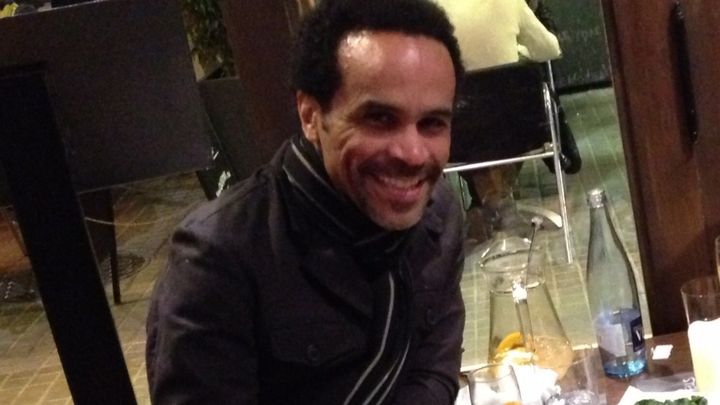
David Taylor and Family
My name is Sharolyn (Shari) Jones-Taylor and my beautiful husband, David Taylor, was diagnosed with glioblastoma, a fast-growing, reoccurring, grade IV brain tumor, shortly after his 53rd birthday this year. We have been blessed with truly AMAZING friends, a group of whom approached me about setting up a Gofundme account and asked that I write the narrative for it.
Obviously, we as a family have had a great deal to absorb in a short amount of time. And if you know David, you also know that he’s a pretty private person, as am I, so this sort of narrative is a difficult thing to write (and as a result, rather awkwardly done I’m sure), but shortly after his birthday, David started struggling with words—as most of us do from time to time—but this was different. Within a couple of weeks, he was clearly having difficulty processing: he wasn’t consistently answering my questions (more than the normal way that husbands ignore their wives) until I’d asked him two or three times, and then he would ask me to repeat, and his responses were growing ever more brief and simpler. I told him he was scaring me, but again, in typically “man” fashion, David refused to go to the ER, arguing that he couldn’t miss work, and if you know David Taylor, you know if he says he’s not going, he’s not going.
So, David continued to go to work and (I believe) hold in his concerns to keep me from worrying. One evening, though, I came home from work and he was in bed, in the dark, in tears, with an excruciating headache. He said he was hungry, so I made dinner, hoping some food might help, but he was in so much pain I had to help him eat. Once again, I tried to convince him to let me take him to the hospital, but he said he felt a little better and just wanted to go to bed.
The next morning when I woke him, he gave in and agreed to go to the hospital. After some scans, we were told there was a sizable mass on David’s brain. A neurosurgeon came, and a craniotomy was scheduled for two days later. David asked the surgeon if he could go home, and after consideration, the doctor said yes, since we live so close to UAMS and could get there quickly. I was relieved that David could be at home, thus more relaxed and less frightened; a few days later, David’s surgeon told me that he had allowed it because he wanted us to have “one last night together” before everything changed, as he knew David might not survive surgery, and if he did, it would be difficult to predict how much speech and cognitive function he would have.
David’s initial surgery didn’t go as planned: his surgeon wanted David to be awake through the procedure to allow for close monitoring of his speech so they could get as much of the tumor as possible with as little damage as possible. But David couldn’t tolerate this approach and was having a hard time with commands, etc., so his team had to change the approach, meaning they removed less of the tumor than they had hoped. For the next few days in ICU, David’s brain swelled, and his temperature and heart rate were elevated. He could not speak and had little to no movement in his right hand. Without continued intervention, and doctors and nurses working to alleviate the swelling, David would not have survived these first days after surgery.
After more imaging and his surgeon’s determination of how to approach the tumor again, David underwent a second surgery. This time, his doctor was more confident about the amount of tumor he was able to remove, though he has made it clear to us that glioblastoma has an extremely high rate of rapid recurrence. The plan is for David to go from UAMS to inpatient rehab, which will entail speech therapy to try to get as much of his speaking ability back as we can, as well as work on his cognitive functions; occupational therapy to improve David’s ability to eat, drink, text, and otherwise do daily “stuff”; and physical therapy, as his right (and normally dominant) side has been significantly affected. After that, the hope is that David will be able to start chemo and radiation therapy that should last around six to eight weeks.
As I’ve said, this is a difficult story to write, but two neurosurgeries, extended hospital stays, inpatient rehabilitative care, chemotherapy, radiation therapy, and—as it seems unlikely that David will be able to return to work any time soon—lost wages, compelled me to agree to our wonderful friends’ suggestion to request support from old friends, our family, and new friends.
All funds generated from this account will be used to pay for costs associated with David’s surgeries and his ongoing treatment, his uncovered medical expenses, and other treatment-related costs. If we don’t wind up using all the funds raised, we will donate the rest to charity in honor of David.
All of the contributions are greatly appreciated, and David and I, along with his family, are so grateful for your help and support.
To see updates about David, visit his CaringBridge journal at: https://www.caringbridge.org/visit/davidttaylor